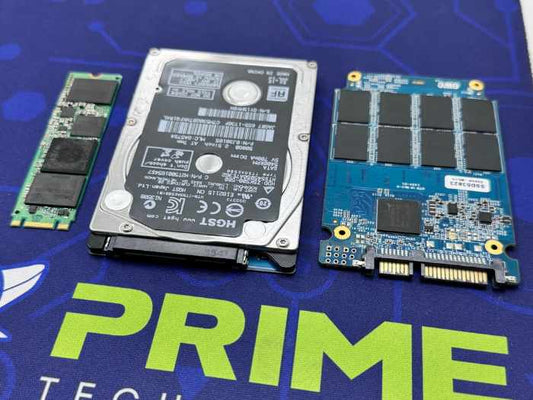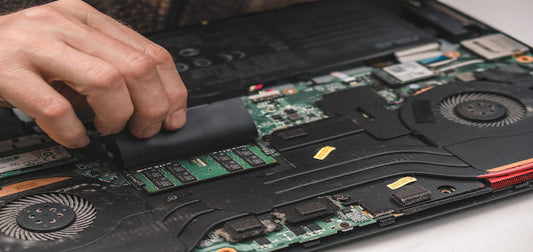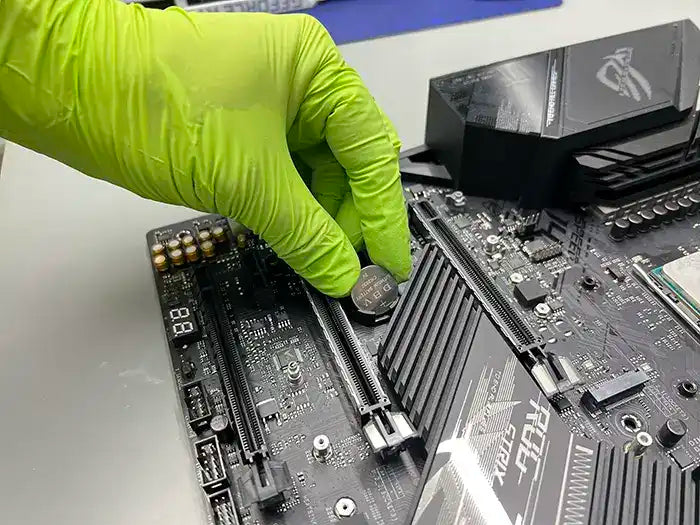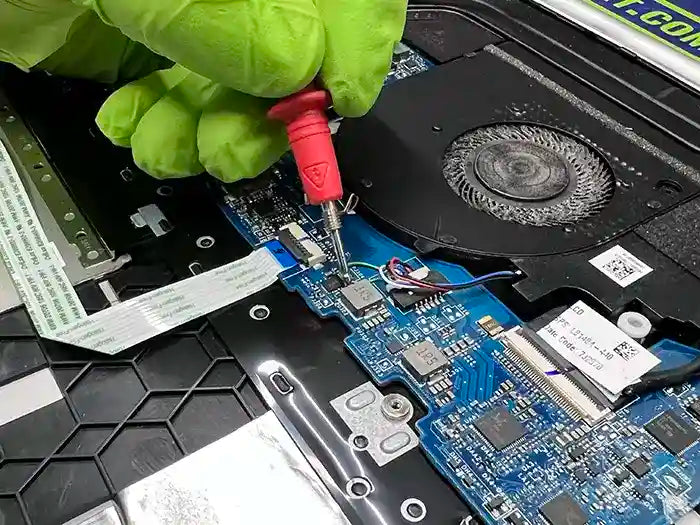HDD vs SSD vs M.2 SSD: Choosing the Right Storage for You
In the fast-paced digital era, the need for reliable and efficient storage solutions has never been more critical. From personal computing to professional workstations, the choice of hard drive can significantly impact performance, capacity, and overall system efficiency. This guide explores the various types of hard drives available, highlighting the advantages of each and why the M.2 SSD stands out as a superior choice for those looking to upgrade their storage solution.
Table of Contents
Understanding the Importance of Hard Drive Selection
Choosing the right hard drive isn't just about having enough space to store your files; it's about optimizing performance, ensuring reliability, and securing your data against loss or corruption. With a variety of options available, from traditional HDDs (Hard Disk Drives) with their larger capacity and cost-effectiveness, to the faster and more durable SSDs (Solid State Drives), making an informed decision can significantly impact your device's overall functionality.
This discussion delves into the nuances of hard drive technologies, comparing their benefits and limitations, and offering practical advice for selecting a drive that meets your specific needs, thereby enhancing your computing experience while safeguarding your digital life.
Traditional Hard Disk Drives (HDDs)

The Basics of HDD Technology
Hard Disk Drives (HDDs) are storage devices used for storing and retrieving digital information using rotating disks or platters coated with magnetic material. Data is read and written by a moving arm that floats above the spinning disks. This technology has been the backbone of digital storage for decades, offering large storage capacities at a low cost per gigabyte.
Read this article about Defragmenting Your Laptop Hard Drive for Optimal Performance
Pros and Cons of Using HDDs
Pros:
-
Cost-Effective: HDDs offer a lower cost per gigabyte than SSDs, making them ideal for bulk storage.
-
High Capacity: They are available in very high capacities, up to several terabytes (TB), which is beneficial for storing large files and backups.
-
Tried and Tested: HDDs have a long history of reliability and durability over many years of use.
Cons:
-
Slower Speed: Compared to SSDs, HDDs have slower read/write speeds due to their mechanical parts.
-
Vulnerable to Physical Damage: Moving parts make them more susceptible to damage from shocks and drops.
-
Noise and Heat: The spinning disks and moving read/write arm generate more noise and heat.
Upgrade your HDD for a SSD Today in our Miami Store
Solid State Drives (SSDs)

How SSDs Revolutionize Storage
Comparing SSDs to HDDs: Speed, Durability, and Energy Efficiency
- Speed: SSDs have much faster read/write speeds, significantly reducing boot times, file transfer speeds, and overall system responsiveness.
- Durability: With no moving parts, SSDs are more resistant to physical shock, making them more durable and reliable.
- Energy Efficiency: SSDs require less power to operate, contributing to lower energy costs and longer battery life in laptops.
M.2 Solid State Drives (M.2 SSDs)

The Next Generation of SSDs
M.2 SSDs are a smaller, more advanced form of SSD designed to be used in thin laptops, desktops, and high-performance workstations. They connect directly to the motherboard via the M.2 slot and support both SATA and PCIe interfaces, with PCIe offering significantly higher speeds.
Why M.2 SSDs Offer the Best Performance
- Form Factor: The compact size of M.2 SSDs allows for more efficient use of space in compact systems.
- Speed: M.2 drives supporting the NVMe protocol over PCIe offer unprecedented read/write speeds, far exceeding those of traditional SATA SSDs.
- Versatility: M.2 SSDs can utilize various keys and lengths to fit different M.2 slots, making them compatible with a wide range of motherboards.
The Benefits of Upgrading to an M.2 SSD
- Unmatched Speed and Response Times
- Improved Durability and Reliability
- Energy Efficiency and System Cooling
Upgrade your SSD for a M.2 SSD in our Miami Store
Choosing the Right M.2 SSD for Your Needs
Understanding M.2 Form Factors and Interfaces
M.2 SSDs come in various lengths and widths, denoted by numbers like 2280 (22mm wide and 80mm long). It's important to choose one that fits your motherboard. Additionally, knowing the difference between SATA and NVMe interfaces is crucial, as NVMe offers superior performance.
Capacity and Speed Considerations
Decide on a capacity that fits your needs and budget. For speed, consider an NVMe M.2 SSD for tasks requiring high read/write speeds.
Recommendations for High-Performance M.2 SSDs
Consider models like the Samsung 970 EVO Plus, Western Digital Black SN750, or the Crucial P1 for a blend of reliability, speed, and capacity at various price points.
Boost your Laptop Speed, see the recommendations of our technical team
Installation Tips for M.2 SSDs
Step-by-Step Guide to Upgrading
- Backup your data before starting the upgrade process.
- Power down your computer and disconnect it from power sources.
- Open your computer case and locate the M.2 slot on your motherboard.
- Insert the M.2 SSD gently into the slot at an angle, then lower it and secure it with the provided screw.
- Reassemble your computer and power it on.
Ensuring Compatibility with Your System
Before purchasing an M.2 SSD, confirm that your motherboard has an M.2 slot that supports the SSD's interface (SATA or NVMe).
Upgrade your Computer Today by Expert Techs
FAQs
- Compatibility depends on your motherboard. Most modern motherboards support M.2 SSDs, but it's crucial to check your motherboard's specifications for M.2 slot availability and supported interfaces (SATA or NVMe).
- How do M.2 SSDs compare in price to traditional HDDs and SSDs?
- M.2 SSDs are generally more expensive per gigabyte than HDDs but are becoming more competitively priced with traditional SSDs. The performance and space-saving benefits often justify the cost difference.
- Are M.2 SSDs suitable for gaming PCs?
- Absolutely. M.2 SSDs offer faster load times and improved responsiveness, making them ideal for gaming PCs where performance is key.
- How long do M.2 SSDs last?
- M.2 SSDs are designed for durability and have a longer lifespan than HDDs. They can withstand more read/write cycles and are less susceptible to physical damage because they have no moving parts.
Conclusion
The shift towards faster, more reliable storage solutions is evident, with M.2 SSDs leading the charge. Offering unparalleled speed, durability, and efficiency, M.2 SSDs represent the pinnacle of storage technology.
Whether you're a professional seeking to enhance your workstation's performance, a gamer looking for lightning-fast load times, or simply someone aiming to upgrade their computer's storage, an M.2 SSD is a future-proof investment that delivers immediate benefits.
For those ready to make the leap, consider high-performance M.2 SSDs like the Samsung 980 SSD, Western Digital Black SN750, or Crucial P1. These models are renowned for their reliability, speed, and capacity options, making them suitable for a wide range of needs and budgets. By choosing the right M.2 SSD, you can ensure that your storage solution is not just keeping pace with technology but pushing the boundaries of what your computer can achieve.
Articles Recommended by the Editor:
If you need help with data recovery Check this Article: Data Recovery After Liquid Damage: How We Can Help
For those that like a DIY and want to clean their hard drive securely Check this Article: Securely Wiping Your Old MacBook Pro's Hard Drive Before Replacing It
For those that are experiencing slow performance in their computers, check this Article: Solve Your Slow Laptop Woes: A Professional Step-by-Step Guide
PROFESSIONAL SUPPORT
Computer Repairs
Fast tech support for Computer Repairs. We exceed customer expectations and ensure satisfaction.









